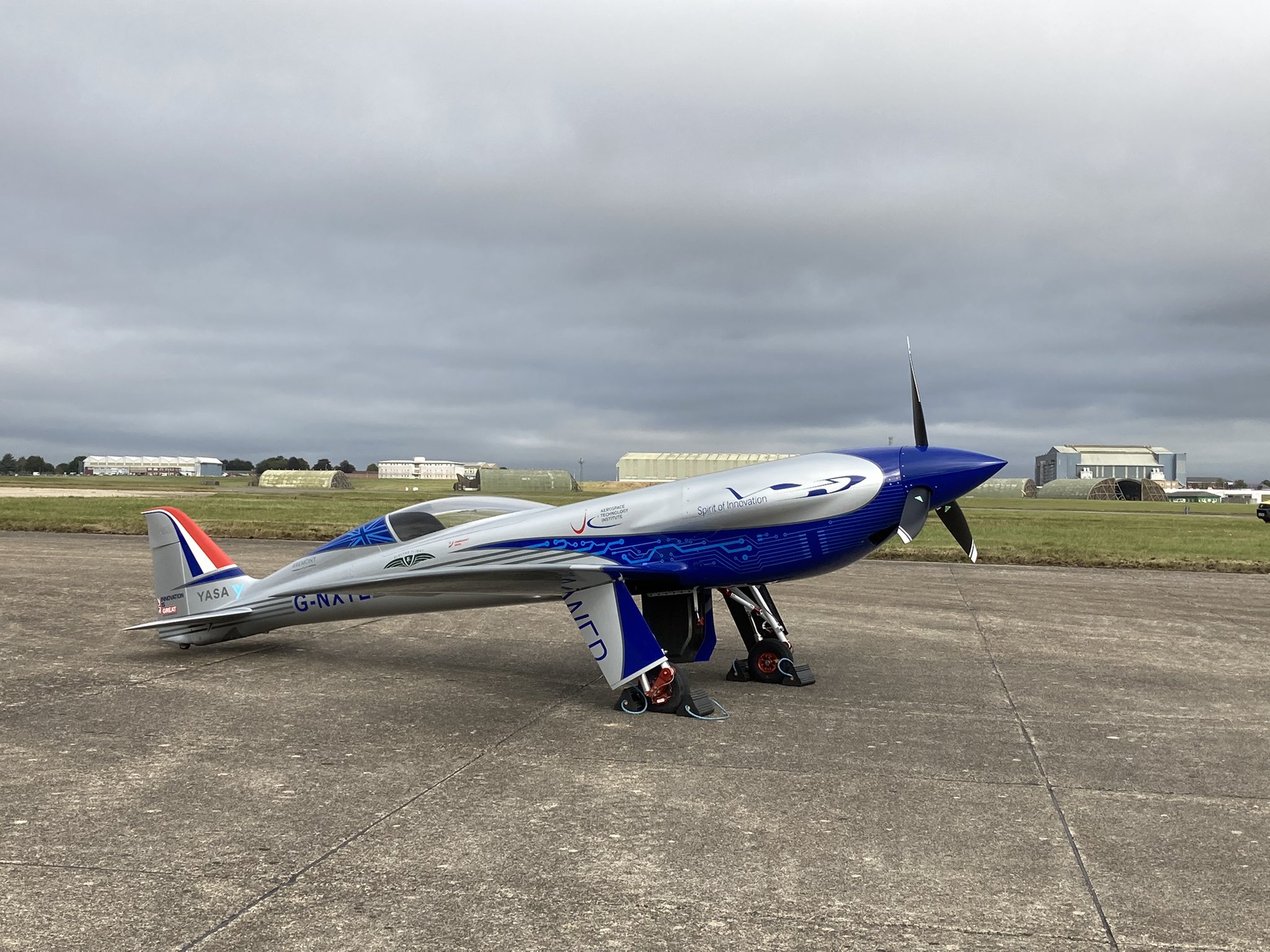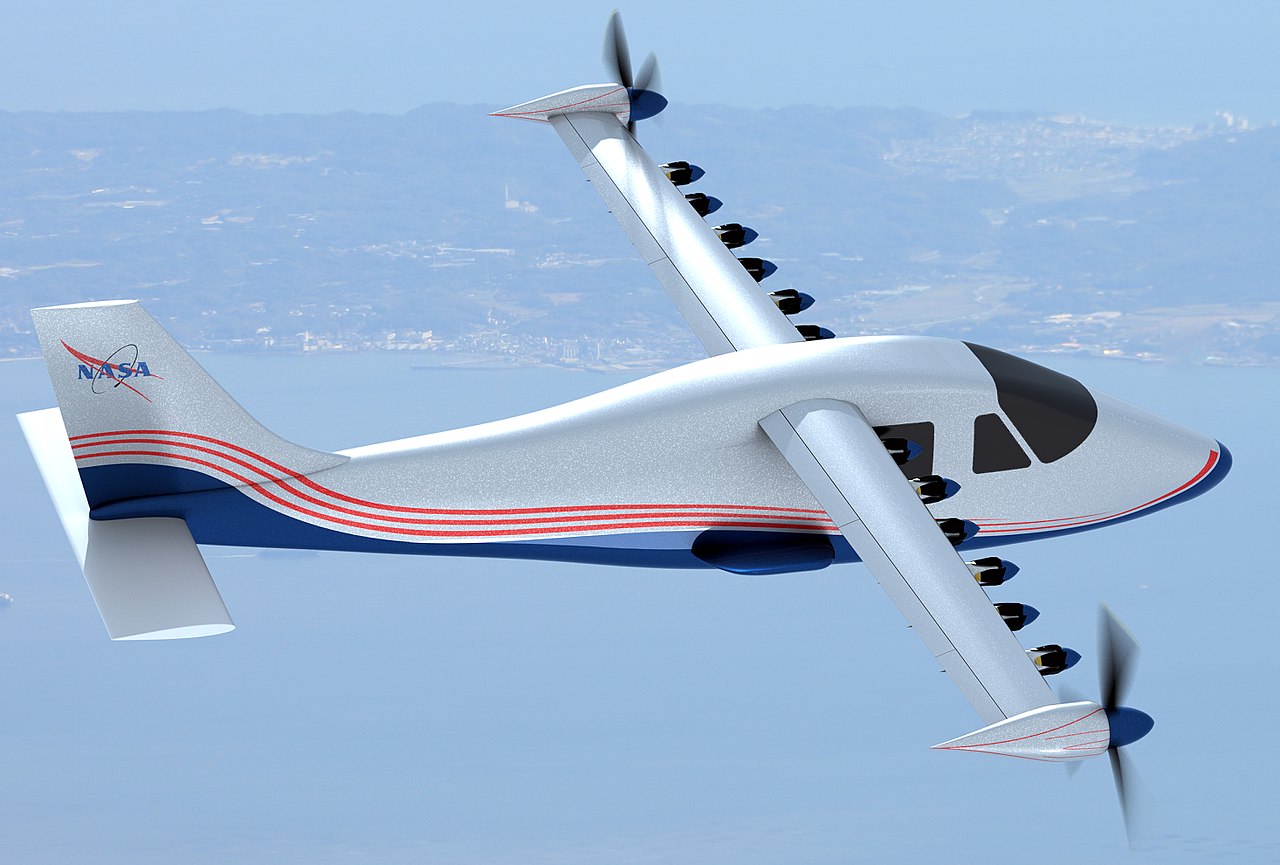Rolls-Royce has accomplished a new feat. The 115-year-old British Engineering firm is now a legend. It has made a mark in electric aviation after producing world-class jet engines.
Rolls-Royce’s single-seat, electric-powered propeller aircraft Spirit of Innovation broke the zero-emission speed record. It flew over 556 km/h (345 mph) over three kilometers and even reached 623 km/h. SmashedAll records of electric planes that are environment friendly have been made.
Rolls-Royce is a company that can provide that solution after being given a clear call by the COP26. After a year of lockdowns and record numbers of flights, the emissions are expected to rise further.
According to industry group ATAG, aviation is responsible for around 915 million tonnes of CO2 globally, or about 12% of all transportation-related emissions

“Following the global attention on the Need for action at COP26, this is another milestone that will help make ‘jet zero’ a reality and supports our goals to produce technological breakthroughs,” said Warren East, CEO of Rolls-Royce.
Additionally, the aircraft is non-military but could be converted to a dual-purpose vehicle that has significant military applications in the future. However, such speculation is purely speculation at this point.
“At the moment, our concentration is on urban air mobility: the eVTOL market with four to six passengers, where we see a feasible product around 2025 and 2026,” said Matheu Parr, CEO of Spirit of Innovation.
“There’s a market right below that we call regional air mobility, which is fixed-wing aircraft with nine to 19 passengers, and we believe you can look at all-electric and hybrid-electric aircraft in 2028 to 2030 inside that range.”
Innovation is the Real Spirit
This e-plane was developed in collaboration with YASA (an electric motor manufacturer) and Electro flight (an aviation startup), with the goal to break world records and bring zero-emissions air travel closer to widespread adoption.
The Spirit of Innovation’s 400 kWh (500+ HP) electric power train is supported by “the most power-dense battery pack ever manufactured for an aircraft,” according to Rolls-Royce. According to the Spirit of Innovation datasheet, it contains 6,480 cells that can charge 7,500 phones.
Rolls-Royce applied for three new world records, after breaking top speed records in all-electric flight!
During flight, the Spirit of Innovation reached a speed of 623km/h (387.4mph).
(Credit: @RollsRoyce) pic.twitter.com/DmYnVoi5L3
— The IMechE Team (@IMechE) December 3, 2021
The company stated earlier that the eplane would reach speeds of 300 mph and aimed to break the 2017 world record of 210 miles set by a Siemens electric airplane.
The FAI has yet to formally recognize Rolls-Royce’s “world record” speeds. The company plans to continue its collaboration with the Accelerating Electricity of Flight (ACCEL), and Electro flight in order to provide more decarbonized passenger flights.
The company also produces jet engines for the Boeing 787 Dreamliner and the Airbus 350. It was tasked to deliver two electric aviation propulsion system in the near future. One for an electric vertical take off and landing (eVTOL), vehicle that can carry up to four passengers and another for a small commuter aircraft with Nordic regional airline Widere.
Future Is Electric
Even though this electric plane’s test flights made headlines and set records, it is not without its merits. Significant challengesRolls-Royce. This is the first time that this territory has been opened up by the British company. It has spent decades developing and manufacturing huge, kerosene-burning jet engine engines.

For electric aviation, however, the company and industry will need to develop new engineering skills. This is why the Spirit of Innovation, despite being small, was able, with the support of partners, and 50% funding by the UK government, to get its feet on the ground.
@RollsRoyceHoldings is focused on aircraft and has a roadmap to create net zero emissions in operations by 2030. The next step is to create net zero emissions for all products by 2050.
Watch to learn more: Spirit of Innovation breaks records and creates the fastest electric vehicle https://t.co/PJcQwzfHzp pic.twitter.com/tADk3SIV5b
— Smarter Mobility Africa (@smaforall) December 7, 2021
The most significant obstacle is the lack of an established supply chain for electric aircraft or a shortage of parts. Although the electric aviation program promises great rewards and ambition, it also presents many challenges due to its novelty as well as high costs.
Rolls-Royce is determined to provide a range of zero-emission power sources for urban air taxis as well as small planes. This would include electric motors as well as power electronics that regulate and direct electricity and onboard wiring.
Rolls-Royce plans on investing 80 million ($105million) in its electric flying business within the next 10 years. This is after Siemens e-Aircraft was purchased in 2019.
Rolls Royce has made it clear that it is determined to lead the market for electric aviation. Despite the many challenges in terms of supply and tech, it is here to stay. It remains to be seen if the British giant will release an electric military aircraft in the future, and if it will set new records.


